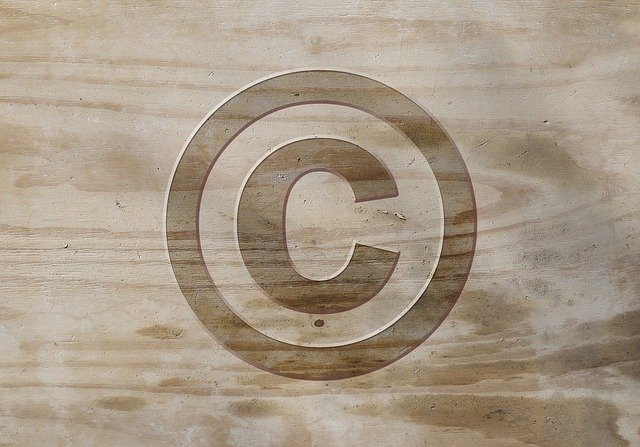The 2010s have seen an explosion in self-publishing technologies and platforms. Despite this, a strong stigma against self-publishing still exists among authors and readers. But there are so many advantages to self-publishing that even some notable best-selling authors have turned to self-publishing their books. If they’re doing it, perhaps there is something to it.

When I first started writing seriously, I joined Writing.com. It was a wondrous, massive, vibrant community of writers and I loved the two years I spent as a dedicated member. There were so many great authors with wonderful short stories on the site that I decided to get some of them together and publish an anthology of their work.
That was 2006 – 2008 and there was only really one player in the game – Lulu.com (to be followed shortly by Createspace). I had a lot to learn about publishing and there were far fewer resources available (YouTube, blogs, and podcasts were all still relatively new). But I gathered some enthusiastic authors, readers and editors together and we had great fun working on the first book.
The first anthology that was published with my new company Utility Fog Press was somewhat underwhelming, with many rookie mistakes. But we went on to publish two more (Assassins’ Canon and Farspace 2) that I am quite proud of.
Thus began my love of publishing and my journey into the world of self-publishing. Since those early days, the industry has changed so much. The rise of the e-book, the development of Kindle Direct Publishing which eventually engulfed Creatspace, the streamlining of upload platforms, the increasing competition in self-publishing space, it’s all led to the amazing place we are now, where self-publishing can, for many authors, be the most lucrative path forward. If only they can overcome the stigma still attached to it.
That’s why I created the Self-Publishing Hub and my facilitated self-publishing imprint Quantum Dot Press, which has published almost 20 books in the last five years. And that’s why I want to share with you 5 reasons you need to consider self-publishing if you are an author.
1. More Royalties
Traditionally-published authors (those published by the Big-5 and their numerous imprints) will typically receive royalties on the profits of their book sales of between 10-15% (although only after the advance has been ‘earned out’).
Self-published authors can earn up to 70% from e-book royalties (on Amazon or Kobo if priced over $2.99).
Self-published authors have much lower overhead, much greater control over the pricing of their product, and can modify the pricing more easily to meet market expectations. All of this means they have a huge potential make a lot of money. There are self-published authors who have become millionaires from the sales of their books. There are others who have used their self-publishing to spawn a larger business involving podcasts, workshops, shared universes, etc.
The beauty of self-publishing is the freedom it gives the creator.
Advance Against Royalties
According to Chip MacGregor of MacGregor and Luedeke, first-time traditionally-published fiction authors will typically be given an Advance Against Royalties upon signing for a book publishing deal of $5000 – $15000. This should not be thought of as free money, but a loan against sales. The author sees no further money from the publisher until royalties from sales exceed the advance.

2. Control Over Your Creative Vision
Talk to any traditionally-published author and you will hear horror stories. Each has a tale of massive rewrites, cover design messes, being forced to change characters or plot lines due to the fear of causing offence. I’ve heard from agents and editors who say that typically 50% of an author’s book will be reworked.
In times of ideological turmoil, such as the last 5 years, this can become very problematic and it’s not difficult to find a number of books that have been cancelled because of harsh criticism from a vocal minority on social media.
If this sends shivers down your spine, then it’s likely self-publishing is for you. It may take time to build the audience that appreciates your work, but at least it will be your work and your vision they’re appreciating.
3. Publish Faster
As a self-published author, you are able to publish what you want, when you want.
While you should definitely be working with an editor and strive to create the most professional product you can, in the end, you have all the creative power and don’t have to wait on go/no-go decisions from departments like Marketing.
That means, if you’re niche is 70-page self-help books, and you can turn out several per year, then you can publish as fast as you can have the book ready, without waiting on publishing windows.
Beside avoiding the publishing gatekeepers, self-publishing allows for experimentation in everything from pricing to page-count to format. That keeps the industry fresh and able to adapt to the desires of the readers.


4. Complete Ownership of Your IP
Going hand-in-hand with complete creative control, is complete control over you intellectual property. You own everything you create (in some countries you still need to apply for a copyright) and all the original characters and settings.
This is a very powerful right and should not be taken lightly. Always ensure that whichever platform you publish with guarantees you retain the world-wide rights to your work (all the reputable ones do).
The agents of traditionally-published authors will negotiate the rights for their clients. As a self-published author, you generally won’t require an agent, unless your book attracts broader attention, such as with companies seeking movie/TV rights or translation rights.
5. It's Easier than Ever!
In addition to all the other benefits of self-publishing, it has never been easier to be a self-published author. What was a significant technical challenge only ten years ago has now been greatly streamlined.
There are numerous online platforms for publishing, each striving to create a better experience than the other.
Companies like Amazon’s Kindle Direct Publishing, Draft2Digital, and PublishDrive have straightforward upload procedures and free e-book creation tools (although PublishDrive has a monthly subscription). The latter two will also distribute to many other sales platforms like Apple, Kobo, and Barnes & Noble, as will some of the e-book-only platforms like Smashwords or Streetlib.
One thing that is particularly exciting about some of the new platforms is their focus on distributing books into areas of the world, like Africa, that have been less served by larger platforms.
Self-Publishing Platforms
- Amazon Kindle Direct Publishing
- Barnes and Noble Press
- Apple Books
- Kobo
- Ingram Spark
- Lulu
- Draft2Digital
- PublishDrive
- Smashwords
- StreetLib
What about you?
Are you a writer looking to publish soon? A happy self-published author? Or maybe a traditionally published author who has decided to self-publish some of their backlist? We’d love to hear from you. Come by our FaceBook page, the Utility Fog Forum, and share your experiences.